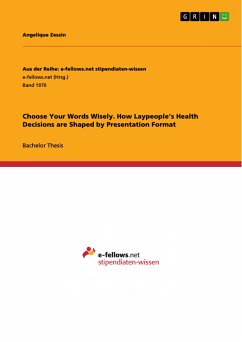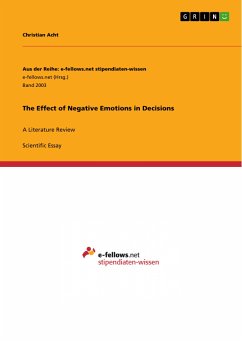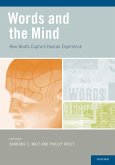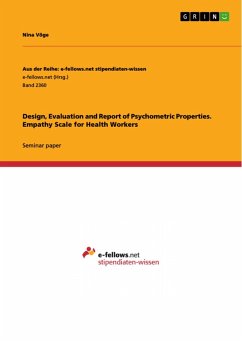Bachelor Thesis from the year 2016 in the subject Psychology - Diagnostics, grade: 1,0, Humboldt-University of Berlin (Institut für Psychologie), language: English, abstract: How efficacy data is presented influences information processing and treatment decisions of patients and health professionals. The present study investigated the impact of risk reduction format on the understanding and recall of treatment effects, as well as on the acceptance of the treatment in question. The effects of intelligence and prior experience were examined in an explorative way. In an online questionnaire, 172 laypersons read a hypothetical scenario of a visit to the dentist and the possibility to take paracetamol for pain relief. Participants received efficacy information either as absolute risk reduction, relative risk reduction or number needed to treat, interpreted these figures and indicated the likelihood of them taking the medication. In the end, they were asked to recall the initially presented effect. Risk reduction in relative terms was understood least well and more persuasive than in absolute terms. Prior experience with the medication had an impact on its acceptance. Probably, the overestimation of relative risk information mediates its higher persuasiveness.









